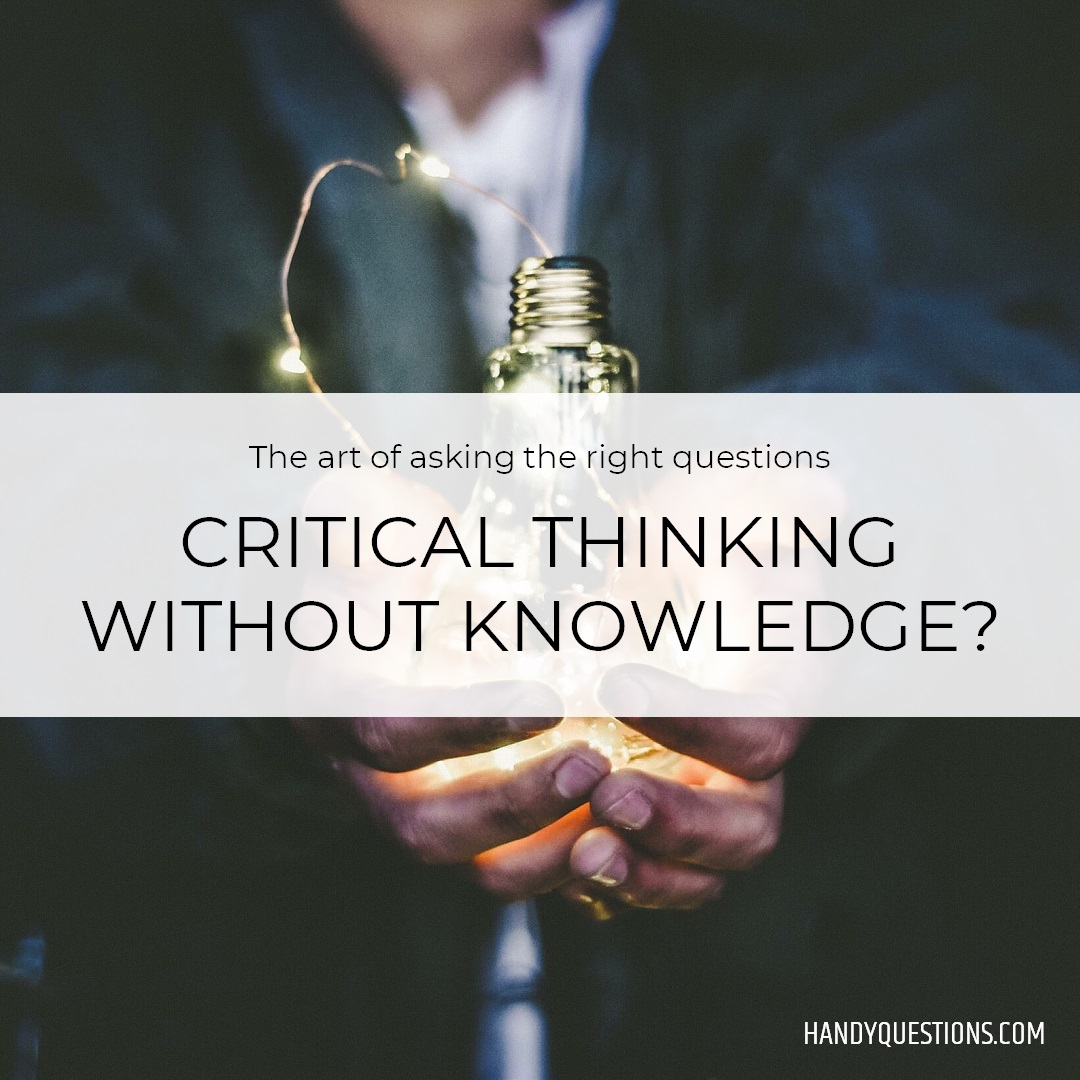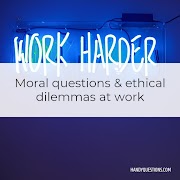Critical thinking - Why knowledge is important
In today's fast-paced world, critical thinking and the ability to ask the right questions are more important than ever. With the rise of fake news and misinformation, it's essential to be able to think critically and evaluate information carefully. However, critical thinking and effective questioning skills require a solid foundation of knowledge. In this blog post, we'll explore the importance of knowledge in asking the right questions and critical thinking.
 |
Is it possible to think critically without domain knowledge? No, unfortunately even the best thinkers need background information if they are to think critically!
But on the other hand, having a lot of knowledge does not immediately imply critical thinking either.
Let me explain.
In literature and online, four good reasons are often given to show that knowledge is important for critical thinking [1]. These are the following arguments:
1. Firstly, knowledge provides the necessary background information to ask informed questions. Without a basic understanding of a topic, it can be challenging to know what questions to ask. For example, if you're trying to evaluate the claims of a new health supplement, you need to have a basic understanding of nutrition, biology, and how the body functions. Without this knowledge, it's difficult to ask informed questions about the supplement's efficacy or potential side effects.
2. Secondly, knowledge helps to identify gaps in information. When you have a solid understanding of a topic, you can quickly identify areas where you need more information. This ability is essential for critical thinking because it allows you to fill in the gaps in your knowledge and evaluate information more effectively. For example, if you're reading an article on climate change, you may identify areas where you need more information, such as the impact of deforestation on global warming or the role of international policy in reducing carbon emissions.
3. Thirdly, knowledge allows you to evaluate information critically. When you have a basic understanding of a topic, you can assess the credibility of sources and evaluate the validity of arguments. This skill is crucial in today's world, where misinformation and fake news are prevalent. Without a solid foundation of knowledge, it can be challenging to distinguish fact from fiction. For example, if you're trying to evaluate the claims of a political candidate, you need to have a basic understanding of their policy positions and track record to assess the validity of their arguments.
4. Finally, knowledge provides the context necessary to ask meaningful questions. When you have a broad understanding of a topic, you can ask more insightful and thought-provoking questions. This ability is critical in critical thinking because it allows you to explore different perspectives and consider alternative viewpoints. For example, if you're discussing a controversial social issue, you may ask questions that challenge assumptions or explore different ethical frameworks.
 |
In conclusion, knowledge is essential for critical thinking and the ability to ask the right questions. Without a solid foundation of knowledge, it can be challenging to evaluate information effectively, assess the credibility of sources, or identify gaps in information. By developing a broad understanding of topics, we can ask more meaningful questions and think critically about the world around us. So, whether you're a student, professional, or just a curious learner, don't neglect the importance of knowledge in developing your critical thinking and questioning skills.
But beware: even though having a lot of knowledge is a necessary condition for critical thinking, it is not enough. Besides knowledge, critical thinking also requires a certain attitude and thinking skills.
The 2 most important critical thinking questions
_______
[1] Through study, research and the many conversations I have had on this subject, I have found that the number of philosophers, critical thinkers and educationalists who embrace or have proven this viewpoint is quite large. If you want to know more, the following links may give you a first start:
- this article on KQED,
- this book of Daniel Willingham,
- this article about the role of knowledge in critical thinking
- this book of Diane Halpern (in which on p. 8 critical thinking skills is defined as: attitude + knowledge + thinking skills)
- this book from Gregory Bassam about Critical Thinking where he puts the lack of background knowledge as the number 1 shortcoming to think critically.





